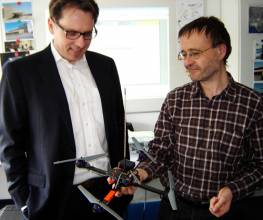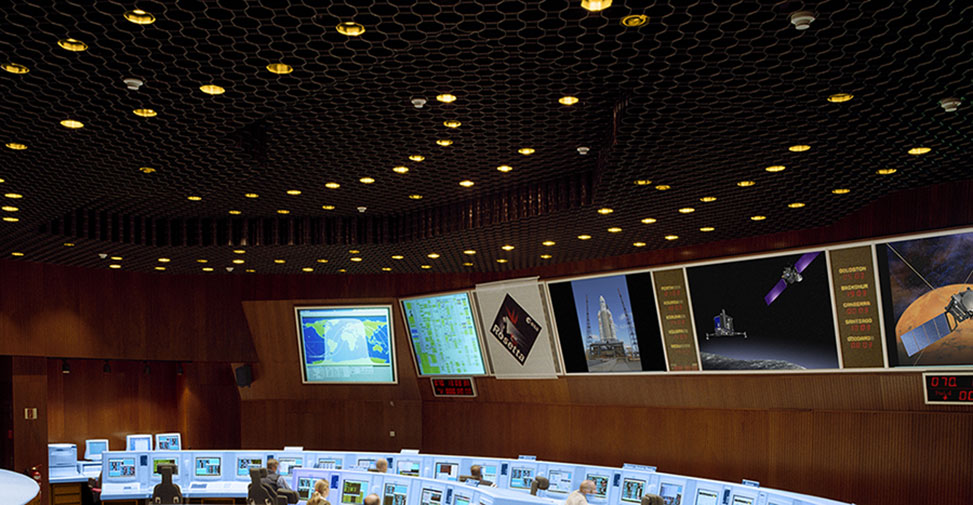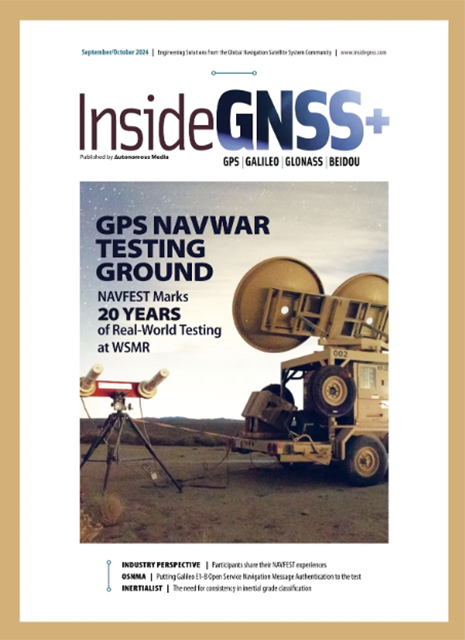Taken on their own, the words were chilling, “Galileo may simply be too late to matter.”
And perhaps more chilling in context.
They were spoken by Frank van Diggelen, technical director and chief navigation officer for semiconductor manufacturer Broadcom, which is combining GPS with Bluetooth and other RF technologies to provide location capability for consumer products.
Taken on their own, the words were chilling, “Galileo may simply be too late to matter.”
And perhaps more chilling in context.
They were spoken by Frank van Diggelen, technical director and chief navigation officer for semiconductor manufacturer Broadcom, which is combining GPS with Bluetooth and other RF technologies to provide location capability for consumer products.
Van Diggelen’s comments were directed to the topic of the panel discussion I was moderating at the recent Munich Satellite Navigation Summit — GNSS and mobile phone navigation — and the prospects for Galileo getting on board with GPS.
The news for Galileo wasn’t much better from Greg Turetzky, a panelist as well as the marketing director at SiRF Technology, another GNSS chipset manufacturer that had long supported Galileo’s development.
“Galileo will be a requirement either by the market or regulation, but the value is dependent on time,” Turetzky said. And time is what Galileo may be running out of.
The panel comments have particular resonance because the Galileo program itself anticipates that mobile handsets represent the majority of the future GNSS market in unit volume, and that Galileo chips will have a place there.
The irony is that Galileo’s place in the GNSS sun was its to lose.
Early in 1994, when serious discussions began on a European GNSS program — and even more so in 1999, when the program gained its name — Galileo appeared well-positioned to become the number two GNSS system.
The collapse of the Soviet Union and the tumultuous years under former President Boris Yeltsin had left Russia’s GLONASS system on the brink of extinction.
But the task of getting many separate European Union (EU) member states to agree on a large infrastructure project — and the ultimately fruitless effort to form a Public-Private Partnership to implement it (as part of the associated politics) — bogged the initiative down.
Ambitious efforts to leverage the civil GNSS as an asset for foreign policy, attracting extra-European participants such as China and Israel to the program, further complicated the process.
The European program has shown a remarkable predilection to snatching defeat from the jaws of victory — a tendency borne out by the preliminary observations of the European Court of Auditors in a report on management of the Galileo program’s development and validation phase.
One conclusion: “The programme’s governance was poor. The division of roles between the entities involved in the development and validation phase of the programme . . . was not clearly defined. Particularly from 2005, the [European] Commission failed to provide adequate leadership in developing and managing Galileo.”
The auditors comprise an independent, professional investigatory agency established under EU treaties to assess whether the EU budget has been implemented correctly.
In their preliminary report (about which we will write more soon), the auditors note, “The Galileo programme organisation has changed markedly since 2007.”
The continuing question, of course, is whether it has changed sufficiently and soon enough to make a difference.
Adding to its self-inflicted woes, the Galileo program now faces a profoundly different external environment than it did 15 years ago.
Russia is well along in re-establishing and modernizing GLONASS. And China, in addition to announcing an ambitious launch schedule that would bring Compass satellites online ahead of Galileo, proposes to overlay signals on the security-oriented Public Regulated Service (PRS) from which the Galileo program expects to gain one-third of its revenues.
Ultimately, many of these considerations will not matter, because the main driver for building Galileo has been European desire — and, arguably, need — for an independent GNSS under its control to secure a critical infrastructure for its 27 member states.
If sovereignty is Galileo’s trump card, it can be played at any time, and when the system is here and fully operational, that will be soon enough.





